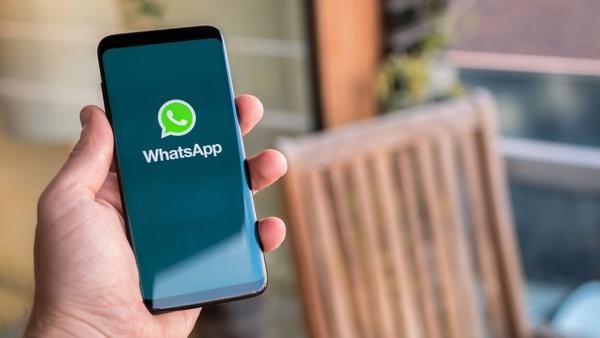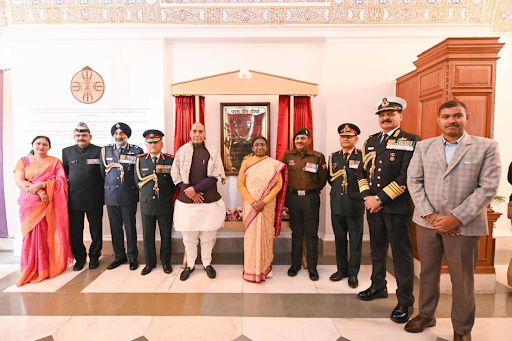Description

Copyright infringement not intended
Picture Courtesy: https://www.republicworld.com/india/whatsapp-vs-centre-debate-what-is-end-to-end-encryption-it-regulations-2021-explained/?amp=1
Context: The dispute between WhatsApp and the Indian government revolves around the implementation of the Information Technology (Intermediary Guidelines and Digital Media Ethics Code) Rules, 2021, specifically focusing on the requirement for social media intermediaries to identify the first originator of messages on their platforms.
Key Points of the Dispute
Identification of First Originator
- The IT Rules 2021 mandate significant social media intermediaries like WhatsApp to enable the identification of the first originator of information upon legal requests from competent authorities.
- This requirement is aimed at tackling issues such as fake news, hate speech, and content that threatens national security or communal harmony.
WhatsApp's Concerns
- WhatsApp, known for its end-to-end encryption, argues that complying with the traceability requirement would force it to break this encryption, compromising user privacy and security.
- Breaking end-to-end encryption to trace the first originator of messages goes against WhatsApp's privacy principles and the fundamental rights to privacy and free speech of its users.
Legal Challenge
- WhatsApp and its parent company Meta (formerly Facebook) have filed a legal challenge against Rule 4(2) of the IT Rules 2021, asserting that it is unconstitutional, ultra vires the IT Act, and illegal.
- They seek protection from criminal liability for non-compliance with Rule 4(2), which requires enabling the identification of the first originator of information.
Government's Justification
- The Indian government argues that traceability is crucial for addressing harmful content like fake news and hate speech.
- Section 87 of the Information Technology Act empowers the government to formulate rules like Rule 4(2) to curb such content in the legitimate state interest of maintaining national security and communal harmony.

About IT Rules 2021
Expanded Scope
- The IT Rules 2021 cover social media intermediaries (SMIs) and now also include online gaming intermediaries.
- They impose responsibilities on intermediaries to ensure content on their platforms complies with specified guidelines, including restrictions on obscene or illegal content.
Regulatory Framework
- The rules place obligations on social media platforms to monitor and remove objectionable content, including hate speech and content that threatens India's sovereignty or unity.
What is End-to-End Encryption?
- End-to-end encryption is a security feature that ensures that only the communicating users can read the messages sent between them.
- Messages are encrypted on the sender's device and decrypted only on the recipient's device, preventing anyone in between, including service providers, from accessing the message content.
Current Status and Future Proceedings:
- The Delhi High Court is overseeing the legal challenge by WhatsApp and Meta against the IT Rules 2021.
- The court has emphasized the need to balance privacy rights with the government's concerns about curbing harmful content.
- The matter is set for further hearing on August 14, awaiting the transfer of other petitions challenging aspects of the IT Rules to the Delhi High Court following a Supreme Court order.
Conclusion
- The dispute between WhatsApp and the Indian government highlights the tension between privacy rights, encryption practices, and regulatory requirements aimed at curbing harmful content online. The legal proceedings will determine the fate of Rule 4(2) and its impact on user privacy and digital governance in India.
Must Read Articles:
INFORMATION TECHNOLOGY (INTERMEDIARY GUIDELINES and DIGITAL MEDIA ETHICS CODE) AMENDMENT RULES, 2023
INFORMATION TECHNOLOGY (INTERMEDIARY GUIDELINES AND DIGITAL MEDIA ETHICS) RULES, 2021
Source:
DECCAN HERALD
News18
|
PRACTICE QUESTION
Q. A controversial new law allows law enforcement agencies to compel technology companies to hand over encrypted user data and communications during investigations, subject to a court order. Tech companies argue that this would undermine the security and privacy of their products and services, while law enforcement agencies say it is necessary to combat crime and terrorism effectively. As a policymaker, how would you approach this issue to protect both privacy and public safety? What specific guidelines and limitations would you propose for such a law?
|










